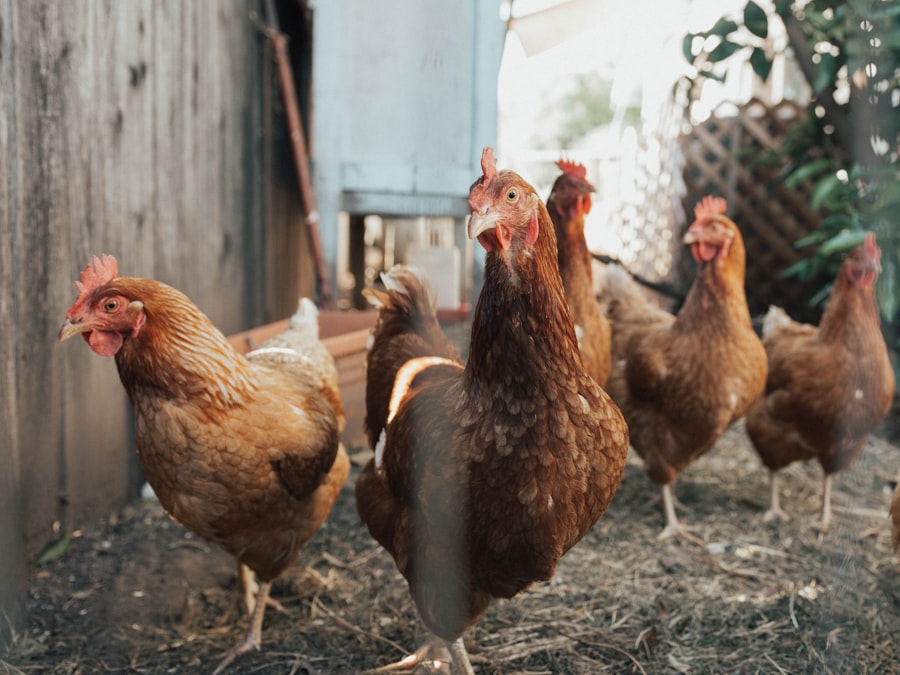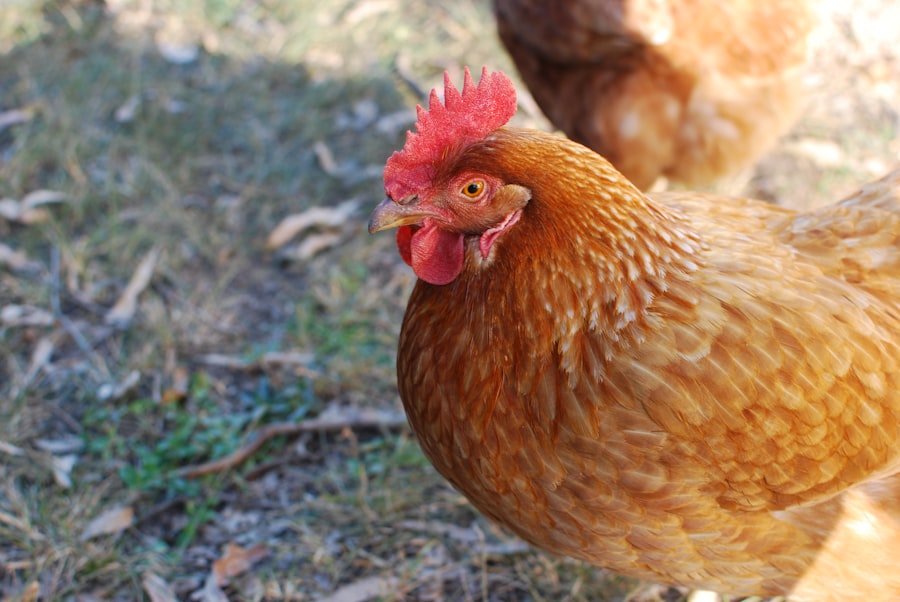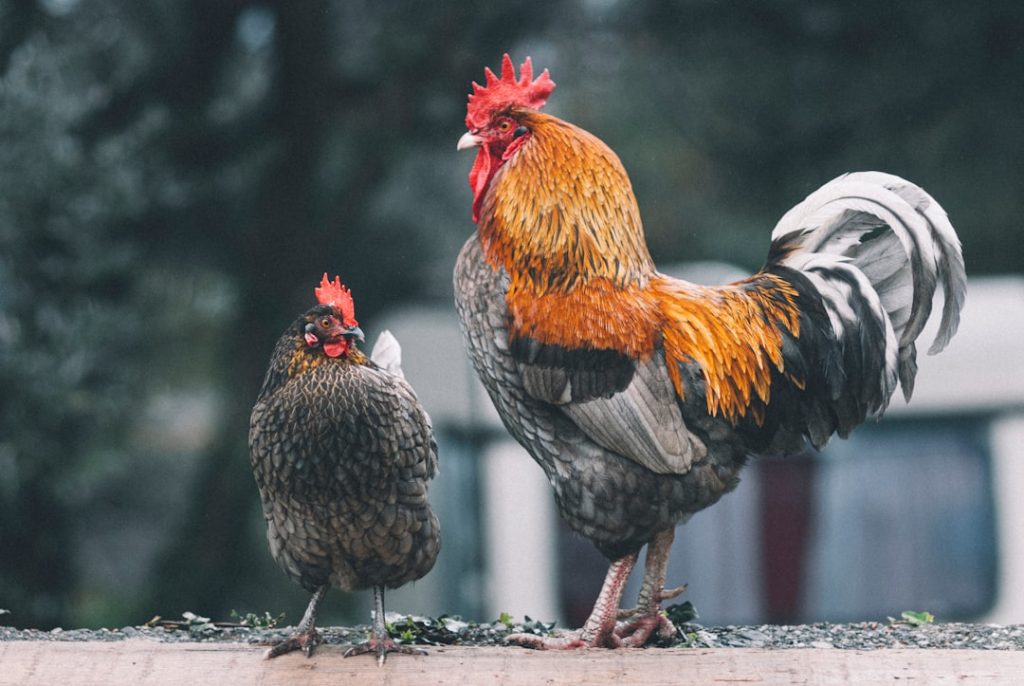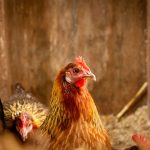Chickens flying towards humans can be an unexpected and potentially alarming experience. While chickens are not known for their flying abilities, they can become airborne when startled or threatened. This behavior is typically a natural instinct to escape perceived danger rather than an act of aggression.
When chickens fly at a person, it’s essential to remain calm and assess the situation. Possible triggers for this behavior include sudden noises, movements, or perceived threats in the environment. In some instances, chickens may exhibit territorial or aggressive behavior, particularly if they feel threatened.
Understanding the reasons behind this behavior is crucial for effectively managing and preventing such incidents. By gaining insight into why chickens may fly towards humans, chicken keepers can take appropriate measures to create a safer environment for both the birds and themselves. This may include identifying and removing potential stressors, modifying the coop or run design, and implementing proper handling techniques to minimize the likelihood of chickens becoming startled or feeling threatened.
Table of Contents
- 1 Understanding the Behavior of Chickens
- 2 Tips for Dealing with Chickens that Keep Flying at You
- 3 Creating a Safe Environment for Chickens and Humans
- 4 Seeking Professional Help for Aggressive Chickens
- 5 The Importance of Proper Training and Handling of Chickens
- 6 Enjoying the Benefits of Keeping Chickens while Minimizing the Risks
- 7 FAQs
Key Takeaways
- Chickens flying at you can be a startling experience, especially if you are not used to their behavior.
- Understanding the behavior of chickens, such as their natural instincts and triggers, can help you deal with their flying tendencies.
- Tips for dealing with chickens that keep flying at you include avoiding sudden movements, using positive reinforcement, and providing distractions.
- Creating a safe environment for chickens and humans involves proper fencing, providing enough space, and keeping the area clean and free of potential hazards.
- Seeking professional help for aggressive chickens is important if you are unable to manage their behavior on your own.
Understanding the Behavior of Chickens
Fear and Flight Response
One common reason why chickens may exhibit flying behavior at humans is fear. As prey animals, chickens are naturally skittish and easily startled. When they feel threatened or scared, their instinct is to flee, and if they feel trapped, they may resort to flying as a means of escape.
Aggression and Territorialism
Another reason for chickens flying at humans is aggression. Chickens can become territorial, especially if they feel their space is being invaded or if they perceive a threat to their flock or food source. In these cases, flying at humans may be a way for chickens to assert dominance or defend their territory.
Individual Personalities and Experiences
It’s also important to consider the individual personalities and experiences of the chickens in question. Some chickens may be more prone to flying at humans due to past experiences or lack of socialization. Additionally, certain breeds of chickens may be more prone to exhibiting aggressive behavior than others.
By understanding the behavior of chickens and the reasons behind their actions, you can better anticipate and address any potential issues that may arise. This knowledge can also help you develop strategies for managing and training your chickens to minimize the risk of them flying at you or others.
Tips for Dealing with Chickens that Keep Flying at You

Dealing with chickens that keep flying at you can be challenging, but there are several tips and strategies that can help you address this behavior and create a safer environment for both yourself and the chickens. One important tip is to remain calm and avoid making sudden movements or loud noises that could startle the chickens further. By staying calm and composed, you can help de-escalate the situation and prevent the chickens from feeling even more threatened.
It’s also important to give the chickens space and avoid crowding them, as this can exacerbate their fear or aggression. Another tip is to observe the chickens’ body language and behavior in order to better understand their motives for flying at you. By paying attention to their cues, such as raised feathers, aggressive posturing, or vocalizations, you can gain insight into their state of mind and take appropriate action.
If you notice that certain areas or situations consistently trigger the chickens to fly at you, consider making changes to minimize these triggers. This could involve rearranging their living space, providing more hiding spots or barriers, or adjusting your own behavior around the chickens.
Creating a Safe Environment for Chickens and Humans
Creating a safe environment for both chickens and humans is essential for preventing aggressive behavior and minimizing the risk of chickens flying at you. One key aspect of creating a safe environment is providing adequate space and resources for the chickens. Overcrowding can lead to stress and aggression among chickens, so it’s important to ensure that they have enough room to move around freely and access to food, water, and shelter.
Additionally, providing enrichment activities such as perches, dust baths, and toys can help keep the chickens mentally stimulated and reduce the likelihood of them becoming bored or frustrated. Another important aspect of creating a safe environment is maintaining a calm and respectful demeanor around the chickens. Avoid sudden movements, loud noises, or aggressive handling that could startle or provoke the chickens.
Instead, approach them calmly and gently, using positive reinforcement techniques to encourage desirable behaviors. By creating a positive and low-stress environment for the chickens, you can help reduce the likelihood of them feeling threatened or exhibiting aggressive behavior.
Seeking Professional Help for Aggressive Chickens
In some cases, dealing with aggressive chickens that keep flying at you may require seeking professional help. If you have tried various strategies to address the behavior with little success, it may be time to consult with a veterinarian or animal behaviorist who specializes in poultry. These professionals can help assess the situation and provide expert guidance on how to manage and modify the behavior of aggressive chickens.
Professional help may also be necessary if the aggressive behavior poses a significant risk to your safety or the well-being of the chickens. A professional can help identify any underlying health issues or environmental factors that may be contributing to the aggression and develop a tailored plan for addressing these issues. Additionally, they can provide valuable insights into chicken behavior and offer training techniques that are effective in managing aggression.
The Importance of Proper Training and Handling of Chickens

Training should commence early, focusing on positive interactions and socialization to help chickens become accustomed to human presence and touch. By establishing trust and positive associations with humans from a young age, chickens are less likely to develop fear or aggression towards people as they mature.
Consistent Handling and Positive Reinforcement
Consistent handling and gentle interactions are vital for reinforcing positive behaviors and building trust with the chickens. Avoiding rough handling or aggressive gestures can help prevent chickens from feeling threatened or defensive around humans. Instead, use positive reinforcement techniques such as treats, praise, and gentle petting to encourage desirable behaviors and create a bond based on trust and respect.
Building a Harmonious Relationship
By following these guidelines, you can create a peaceful and respectful relationship between humans and chickens. With patience, consistency, and positive reinforcement, you can raise happy and well-adjusted chickens that thrive in their environment.
Enjoying the Benefits of Keeping Chickens while Minimizing the Risks
Keeping chickens can be a rewarding experience that offers numerous benefits, from fresh eggs to natural pest control in your garden. However, it’s important to be mindful of the potential risks associated with keeping chickens, particularly when it comes to aggressive behavior. By understanding the reasons behind this behavior, implementing effective strategies for managing it, and seeking professional help when necessary, you can enjoy all the benefits of keeping chickens while minimizing the risks.
Creating a safe environment for both chickens and humans, providing proper training and handling, and seeking professional guidance when needed are all essential components of responsible chicken keeping. With these measures in place, you can foster a positive relationship with your feathered friends while ensuring a safe and enjoyable experience for everyone involved.
If you’re having trouble with chickens flying at you, it might be time to consider the size of your chicken coop door. Poultry Wizard offers some helpful tips on how to determine the right size for your coop door to prevent chickens from escaping and causing chaos. Additionally, they also provide advice on how to safely transport your chickens in and out of the coop, which can help minimize the risk of them flying at you.
FAQs
What are some reasons why chickens might fly at people?
Chickens may fly at people due to feeling threatened, territorial behavior, or if they are trying to establish dominance. They may also fly at people if they feel their chicks are in danger.
How can I prevent chickens from flying at me?
To prevent chickens from flying at you, it’s important to establish yourself as the dominant figure in their environment. This can be done through consistent training, handling, and establishing boundaries. Providing enough space and enrichment for the chickens can also help reduce their aggressive behavior.
Are there specific breeds of chickens that are more prone to flying at people?
Some breeds of chickens, such as game birds, may be more prone to aggressive behavior and flying at people. However, individual temperament and handling can also play a significant role in a chicken’s behavior.
What should I do if a chicken flies at me?
If a chicken flies at you, it’s important to remain calm and avoid making sudden movements. Try to establish your dominance by using assertive body language and vocal commands. If necessary, gently push the chicken away to create distance.
Can flying chickens cause injury?
Yes, flying chickens can potentially cause injury, especially if they have sharp talons and beaks. It’s important to be cautious and take steps to prevent aggressive behavior in chickens to avoid potential injury.
Meet Walter, the feathered-friend fanatic of Florida! Nestled in the sunshine state, Walter struts through life with his feathered companions, clucking his way to happiness. With a coop that’s fancier than a five-star hotel, he’s the Don Juan of the chicken world. When he’s not teaching his hens to do the cha-cha, you’ll find him in a heated debate with his prized rooster, Sir Clucks-a-Lot. Walter’s poultry passion is no yolk; he’s the sunny-side-up guy you never knew you needed in your flock of friends!







